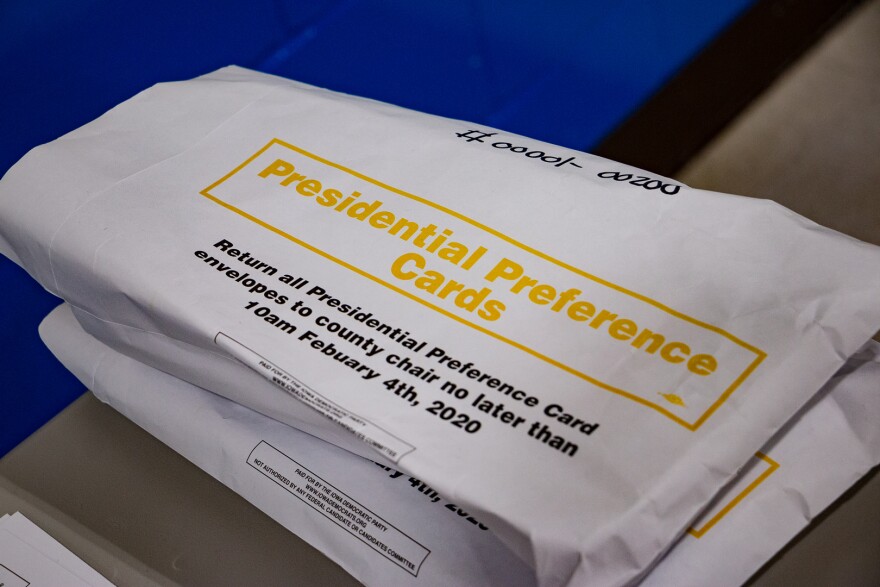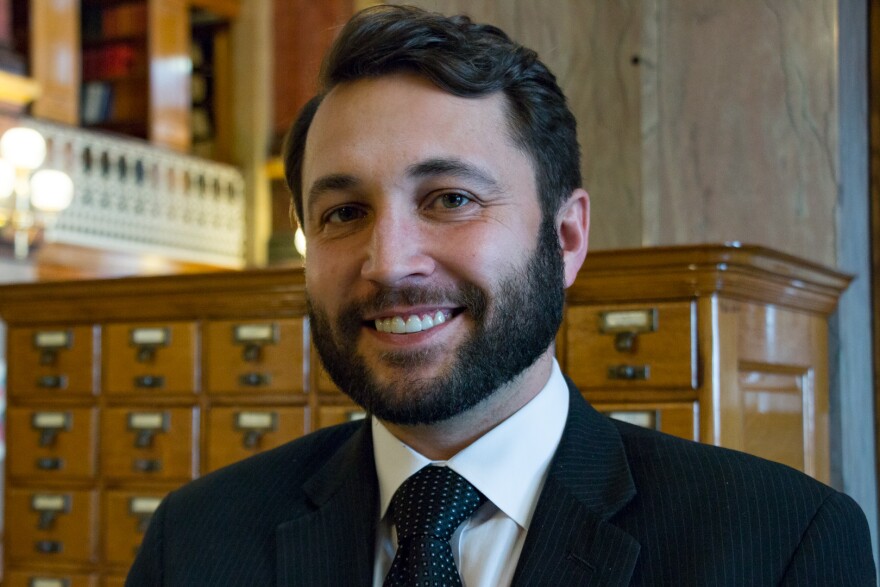Iowa’s two major political parties are at odds over one of the only issues they have remained in agreement over for the last several decades: the state’s first-in-the-nation caucuses. A Democratic proposal that would require caucus participants to mail in “presidential preference” cards is at odds with a bill moving quickly through the Republican-led Iowa legislature that would require in-person caucusing.
Earlier this year, the DNC voted to remove Iowafrom the early window of presidential nominating states for 2024 but the final calendar is not set in stone, with both Georgia and New Hampshire not in compliance. The RNC is sticking with the traditional window (Iowa, New Hampshire, South Carolina and Nevada) with several declared and potentialRepublican candidates testing the waters here.
The Iowa Democratic Party has submitted a 62-page plan to the DNC’s Rules and Bylaws committee that says caucus participants would request a presidential preference card through the mail or online and then have a window of time to fill it out and return it through the mail. The plan also proposes to hold the 2024 caucuses on the same day as Iowa Republicans, when caucus-goers would conduct party business that would be separate from when they tabulate the results of the presidential preference component. Presidential preference results may be released on precinct caucus night or on a different date yet to be announced.
“It’s designed to provide flexibility in the Iowa Democratic Party to respond to this calendar chaos,” IDP Chair Rita Hart told reporters Wednesday. “Until we have clarity on what this calendar looks like... we don't have a menu of options to consider.”
Hart dismissed the legislation moving through the Statehouse.
“It is not my concern what the Republicans think we ought to do with our caucuses. They're going to pass their legislation,” Hart said. “We did not have input into that and that's disappointing.”
Scott Brennan is an attorney, former Iowa Democratic Party chair and current DNC Rules and Bylaws Committee member. He says the legislation raises serious “constitutional issues” that will to have to “be decided by a court” and is not sure why the legislature would tell state parties how to function.

Meanwhile, the Iowa Senate is poised to send a bill to the governor’s desk that would change the rules for caucuses in an attempt to preserve Republicans’ first-in-the-nation status.
The bill says that if a political party decides to select its delegates as part of the presidential nominating process at precinct caucuses that are held before any other state’s presidential nominating contest, “the precinct caucuses shall take place in person among the participants physically present at the location of each precinct caucus.”
The original version of the bill said voters must participate in the caucuses in person. That version would have also required voters to register with a political party at least 70 days before the caucuses. The amended bill advancing in the Iowa Legislature doesn’t have that pre-registration requirement, but it would allow political parties to implement that policy and other restrictions.
“This is my attempt to listen to the criticisms and put forward a piece of legislation that truly preserves the caucuses, while also guaranteeing that first in the nation doesn’t get taken away from us,” said Rep. Bobby Kaufmann, R-Wilton, who sponsored the bill. He said it requires in-person voting but only if the purpose of that caucus is to select delegates to the national convention, which he said is the trigger and the threshold that New Hampshire sees as Iowa being a primary versus a caucus.

“If we do something that they (NH) view as a primary, they will jump us,” Kaufmann said. “This is my best way to compromise and to give the parties the flexibility to do what they want, without allowing either party to endanger Iowa’s first-in-the-nation status.”
Kaufmann is also a paid senior advisor to former president Donald Trump’s Iowa campaign and is the son of Republican Party of Iowa Chairman Jeff Kaufmann. Jeff Kaufmann said the Iowa Democrats’ plan is a “primary-in-all-but-name” that will cause New Hampshire to jump the order and kill the Iowa caucuses.
House Minority Leader Jennifer Konfrst, D-Windsor Heights, said the amendment made the bill “less egregious.” She said she wasn’t sure if the bill would allow absentee participation. “I don’t think this bill does anything to preclude the Iowa Democratic Party from continuing with our plan to make the caucuses more inclusive, early, and a great representation of who the country should have as our nominee,” she said.
Democrats voted against the bill, saying the legislature shouldn’t meddle in political party matters. “We think this was unnecessary,” Konfrst said. “We think this was a waste of time. We think this is playing around in politics.”






